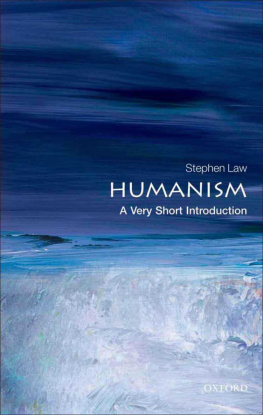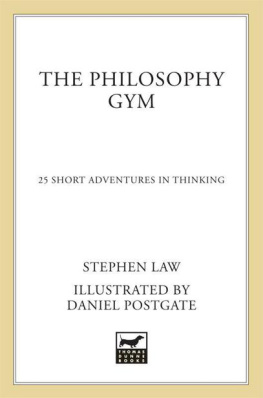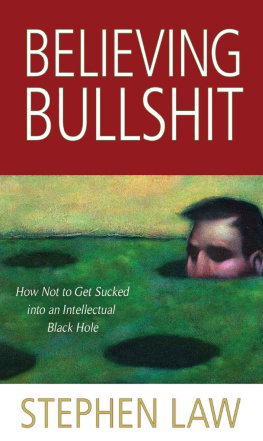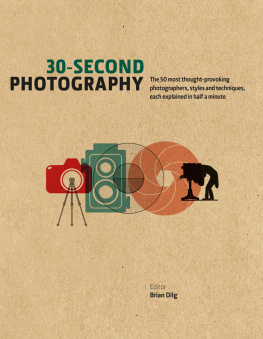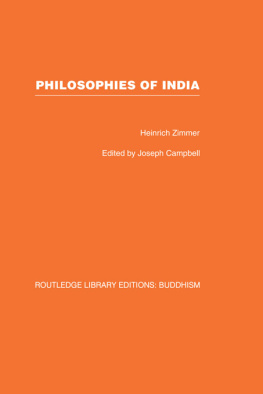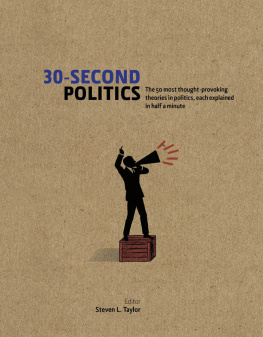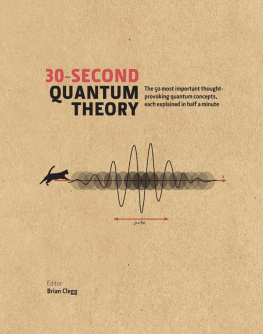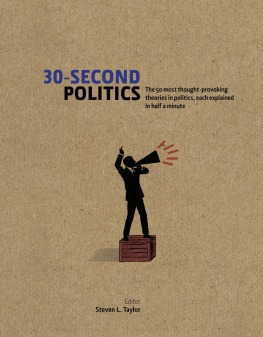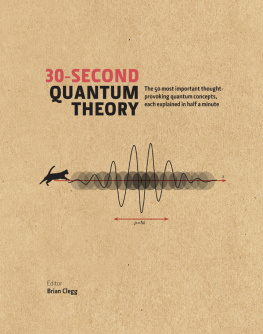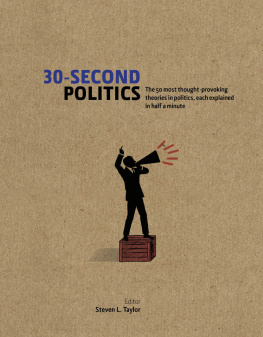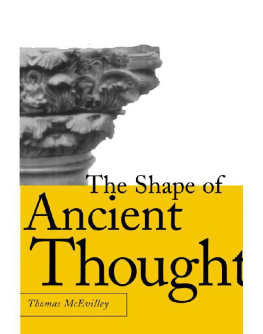Stephen Law - 30-Second Philosophies: The 50 Most Thought-provoking Philosophies, Each Explained in Half a Minute
Here you can read online Stephen Law - 30-Second Philosophies: The 50 Most Thought-provoking Philosophies, Each Explained in Half a Minute full text of the book (entire story) in english for free. Download pdf and epub, get meaning, cover and reviews about this ebook. year: 2012, publisher: Icon Books, genre: Science. Description of the work, (preface) as well as reviews are available. Best literature library LitArk.com created for fans of good reading and offers a wide selection of genres:
Romance novel
Science fiction
Adventure
Detective
Science
History
Home and family
Prose
Art
Politics
Computer
Non-fiction
Religion
Business
Children
Humor
Choose a favorite category and find really read worthwhile books. Enjoy immersion in the world of imagination, feel the emotions of the characters or learn something new for yourself, make an fascinating discovery.

- Book:30-Second Philosophies: The 50 Most Thought-provoking Philosophies, Each Explained in Half a Minute
- Author:
- Publisher:Icon Books
- Genre:
- Year:2012
- Rating:4 / 5
- Favourites:Add to favourites
- Your mark:
- 80
- 1
- 2
- 3
- 4
- 5
30-Second Philosophies: The 50 Most Thought-provoking Philosophies, Each Explained in Half a Minute: summary, description and annotation
We offer to read an annotation, description, summary or preface (depends on what the author of the book "30-Second Philosophies: The 50 Most Thought-provoking Philosophies, Each Explained in Half a Minute" wrote himself). If you haven't found the necessary information about the book — write in the comments, we will try to find it.
30-Second Philosophies: The 50 Most Thought-provoking Philosophies, Each Explained in Half a Minute — read online for free the complete book (whole text) full work
Below is the text of the book, divided by pages. System saving the place of the last page read, allows you to conveniently read the book "30-Second Philosophies: The 50 Most Thought-provoking Philosophies, Each Explained in Half a Minute" online for free, without having to search again every time where you left off. Put a bookmark, and you can go to the page where you finished reading at any time.
Font size:
Interval:
Bookmark:

The 50 most thought-provoking philosophies, each explained in half a minute
Consultant Editor
Barry Loewer
Foreword
Stephen Law
Contributors
Julian Baggini
Kati Balog
James Garvey
Barry Loewer
Jeremy Stangroom

Published in the UK in 2010 by
Icon Books Ltd
Omnibus Business Centre
3941 North Road, London N7 9DP
email:
www.iconbooks.co.uk
2009 by Ivy Press Limited
The editor and contributors have asserted their moral rights.
No part of this book may be reproduced in any form, or by any means, without prior permission in writing from the publisher.
This book was conceived, designed,
and produced by
Ivy Press
210 High Street, Lewes,
East Sussex BN7 2NS, UK
www.ivypress.co.uk
Creative Director Peter Bridgewater
Publisher Jason Hook
Editorial Director Caroline Earle
Art Director Michael Whitehead
Commissioning Editor Nic Compton
Designers James Hollywell, Les Hunt
Concept Design Linda Becker
Illustrations Ivan Hissey
Glossaries Text James Garvey
Picture Research Lynda Marshall
Digital Assistant Emily Owen
Digital ISBN: 978-1-848314-50-4
Philosophy addresses what are sometimes called the big questions. These include questions about morality (What makes things morally right or wrong?); about what we can know, if anything (Can you know that the world around you is real, and not a computer-generated virtual reality?); about the nature of human existence (Are you your brain? Do we possess souls?); and about the nature of reality (Why is there anything at all?).
Religion addresses many of the same questions, but while philosophy and religion overlap in the questions they address, they can differ in the approach they take to answering them. While faith and revelation are typically the cornerstones of religious belief, philosophy places great emphasis on reasonon applying our intelligence in order to figure out, as best we can, what the answers are.
Socrates is supposed to have said, The unexamined life is not worth living. Thats a strong claimtoo strong, I think. Suppose someone devotes themselves selflessly to helping and enriching the lives of their friends, family, and wider community. They can hardly be said to have led a worthless existence simply because they never bothered to step back and ask themselves a philosophical question.
Having said that, Ive no doubt a little exposure to philosophy can be valuable. The kind of skills philosophy fosterssuch as the ability to spot a logical fallacy, or to make a point succinctly and with precisionare the kind of transferable skills that employers value. A little training in philosophy can also help us build robust critical defenses and immunize us against the wiles of pretentious wafflers and snake-oil salesmen. But theyre not the only reason why a little philosophical reflection can be worthwhile.
Whether we realize it or not, we all hold philosophical beliefs. That God exists is a philosophical belief, as is the belief that he doesnt. That right and wrong are not just a matter of subjective opinion is a philosophical belief, as is the belief that they are. Many of us go through life without even registering that we hold philosophical beliefs, let alone questioning them. You may ask: What does it matter whether we ask such questions? After all, the beliefs and the lives of those who ponder them usually arent much different to the beliefs and lives of those who dont. So why bother? Perhaps because the unexamined life is not a life chosen freely in awareness of alternatives, but a furrow mindlessly plowed.
If that doesnt convince you that a little philosophy is a good ideawell, there remains the fact that, good for you or not, philosophy is fun. Within these pages youll find some of the most intriguing, clever, astonishing, and sometimes downright disturbing ideas ever entertained by mankind. Dip in and find out.

Whats it all about?
Does God exist or not? How should I behave? What is real? How do we know what we know? In this book, leading philosophical writers will engage your thought processes with a crash course in understanding the foundations of understanding.

Platonic idealism
The big questions began with the great Greek philosophers. According to Plato, everything in the world is a reflection of its true ideal form that exists outside the world. Plato likened this experience to the flickering shadows of objects reflected on a cave wall by firelight.
Philosophy tries to get to the bottom of things by asking questions and proposing answers. At the bottom of science, for example, are questions like, What are the aims of the sciences?; What is scientific method and why is it so successful?; What is a scientific law?; What is time?; and so on. Scientists generally dont stop to consider at-the-bottom questions like these since they are too busy working on science itself. They can get along by accepting, implicitly or implicitly, certain views without questioning them. Thinking about questions at the bottom of things and developing systematic accounts of the foundations of science is left to the philosophers of science.
Other branches of philosophy concern the foundations of ethics, art, religion, mathematics, psychology, language, and thought in general. Indeed, for every subject and human enterprise there is a philosophy of that subject that delves into the foundations of the subject. The most general branches of philosophy are ontology (about what there is), epistemology (about how and how much we can know about what there is), and ethics (about what we ought to do about what there is).
Philosophers have been thinking about at-the-bottom questions for at least 2,500 years. It started with the great Greek philosophers Socrates, Plato, and Aristotle and has continued to the present day when most (but not all) philosophers are also university professors. Philosophy has evolved as a kind of conversation through the ages among these philosophers. For example, the question What is knowledge? was asked by the Greeks, their answers discussed by medieval philosophers, and their answers much debated and added to by the 17th- and 18th-century philosophers Descartes, Leibniz, and Hume. A contemporary philosopher who addresses this question will have one eye on this history and another on what his contemporaries are saying. In the course of this ongoing conversation many problems, positions, and paradoxes have been produced. In this book you will find a sampling of these.
If you are skeptical that you can become a philosopher in 30 seconds, then you have taken a first small step toward becoming one. The attitude of skepticism and the inclination to question are central to philosophy. By questioning your (and others) beliefs with an open mind, you will better understand what it is you believe, what your concepts are, and thus come to know yourself better. Although it is not possible for you to become a philosopher (you may be one already) by just reading this text, I can pose some of the questions that may take you a bit farther along the path.
Next pageFont size:
Interval:
Bookmark:
Similar books «30-Second Philosophies: The 50 Most Thought-provoking Philosophies, Each Explained in Half a Minute»
Look at similar books to 30-Second Philosophies: The 50 Most Thought-provoking Philosophies, Each Explained in Half a Minute. We have selected literature similar in name and meaning in the hope of providing readers with more options to find new, interesting, not yet read works.
Discussion, reviews of the book 30-Second Philosophies: The 50 Most Thought-provoking Philosophies, Each Explained in Half a Minute and just readers' own opinions. Leave your comments, write what you think about the work, its meaning or the main characters. Specify what exactly you liked and what you didn't like, and why you think so.


